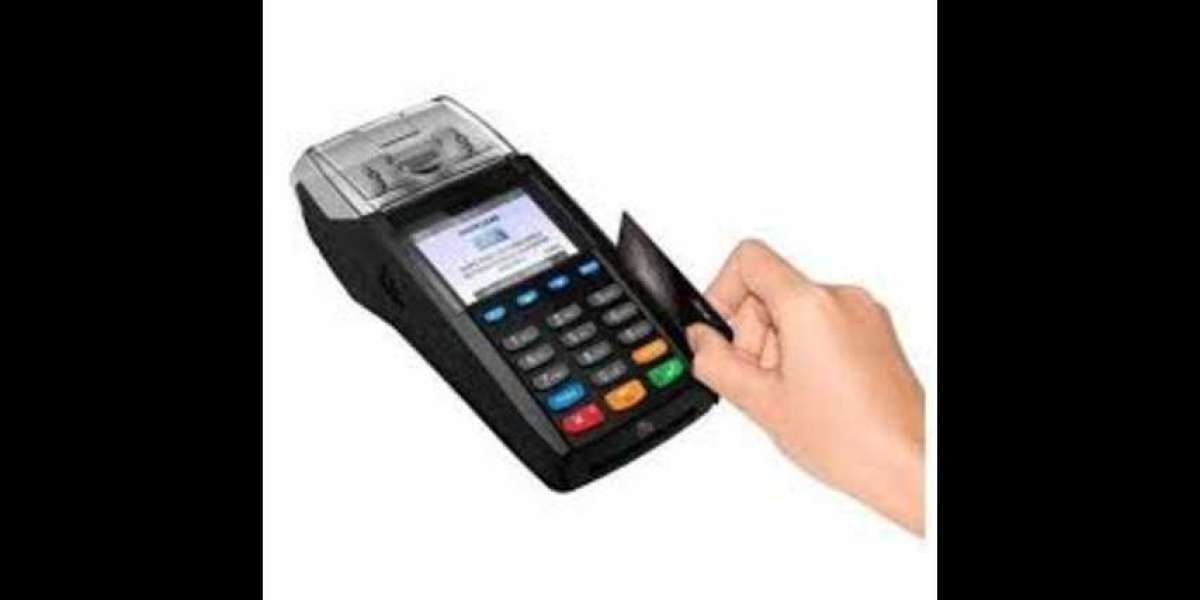In today’s fast-paced retail environment, credit card machines have become indispensable tools for businesses. They streamline payment processes, enhance customer experience, and provide valuable insights into consumer behavior. This article explores the various aspects of credit card machines, highlighting their importance, types, and benefits, while also guiding businesses on how to choose the right solution for their needs.
What Are Credit Card Machines?
Credit card machines, also known as payment terminals or card readers, are devices that allow businesses to process credit and debit card transactions. These machines come in various forms, including traditional point-of-sale (POS) systems, mobile card readers, and virtual terminals. Each type of machine serves different business needs, but they all aim to facilitate secure and efficient payment processing.
By enabling businesses to accept card payments, credit card machines play a crucial role in the overall sales process. They help improve cash flow, reduce handling of cash, and enhance security during transactions. As consumer preferences continue to shift toward digital payment methods, having a reliable credit card machine is essential for staying competitive.
Types of Credit Card Machines
Understanding the different types of credit card machines is crucial for businesses looking to optimize their payment processing. Here are some common types:
Traditional POS Terminals
Traditional point-of-sale terminals are stationary machines typically found in retail environments. These machines are often integrated with cash registers and can handle various payment methods, including credit cards, debit cards, and contactless payments. POS terminals come equipped with features such as receipt printing, inventory management, and customer relationship management tools.
Advantages: Traditional POS terminals are reliable for high transaction volumes and provide comprehensive features for managing sales operations. They are ideal for businesses with a physical storefront.
Mobile Card Readers
Mobile card readers are portable devices that connect to smartphones or tablets, allowing businesses to accept payments on the go. These devices are perfect for vendors at markets, food trucks, or service providers who operate outside of a fixed location. Mobile card readers typically connect via Bluetooth or headphone jacks and come with user-friendly apps for processing transactions.
Advantages: Their portability and ease of use make mobile card readers a popular choice for small businesses and startups. They enable businesses to accept payments anywhere, increasing sales opportunities.
Virtual Terminals
Virtual terminals are software-based solutions that allow businesses to accept card payments online or over the phone. They work through a web browser and require no physical hardware. This option is ideal for e-commerce businesses, subscription services, and companies that primarily deal with remote transactions.
Advantages: Virtual terminals provide flexibility and convenience, allowing businesses to process transactions without needing physical equipment. They often include features like invoicing and recurring billing.
Integrated Payment Solutions
Integrated payment solutions combine credit card processing with existing business software, such as accounting or inventory management systems. This type of solution is beneficial for larger enterprises that require sophisticated data management.
Advantages: Integrated solutions streamline data entry and reduce errors, helping businesses manage finances more effectively. They often provide advanced reporting features that allow for better decision-making.
Benefits of Using Credit Card Machines
Investing in credit card machines offers numerous benefits that can significantly impact a business’s operations and customer satisfaction. Here are some key advantages:
Increased Sales Opportunities
Credit card machines enable businesses to accept a broader range of payment methods, including credit and debit cards, mobile payments, and contactless transactions. This flexibility attracts more customers, as many prefer using cards over cash. Research shows that consumers are likely to spend more when using credit cards, leading to higher average transaction values.
Enhanced Customer Experience
A seamless payment process enhances the overall customer experience. With credit card machines, transactions are completed quickly, reducing wait times at checkout. This efficiency is particularly important during busy periods when customer traffic is high. A positive shopping experience can lead to increased customer satisfaction and loyalty.
Improved Cash Flow Management
Credit card machines facilitate faster payments, allowing businesses to access funds quickly. Unlike cash transactions that require time-consuming deposits, credit card payments are typically processed electronically, making funds available within a few days. This timely access to cash helps businesses manage their finances more effectively.
Enhanced Security Measures
Security is a critical concern for both businesses and customers. Credit card machines are designed with advanced security features that protect sensitive payment information during transactions. Many machines use encryption and tokenization to ensure data is transmitted securely, reducing the risk of fraud.
Access to Valuable Data Insights
Credit card machines provide businesses with valuable insights into customer behavior and sales trends. Many systems come with reporting tools that analyze transaction data, helping businesses identify peak shopping times and popular products. This data can inform marketing strategies and improve inventory management.
Seamless Integration with Business Systems
Many credit card machines can integrate with existing business systems, such as accounting software and inventory management platforms. This integration streamlines data flow, reduces manual data entry, and improves overall operational efficiency. Businesses can maintain accurate financial records with minimal effort.
Choosing the Right Credit Card Machine
When selecting a credit card machine, businesses should consider several factors to ensure they choose the right solution for their needs:
Business Type and Size
The type of business and its size will dictate the best credit card machine. Retail stores with high transaction volumes may benefit from traditional POS terminals, while mobile businesses might opt for portable card readers. E-commerce businesses should consider virtual terminals for online transactions.
Payment Processing Needs
Evaluate the types of payments the business needs to accept. If the target market prefers mobile payments or contactless transactions, ensure the chosen machine supports these options. Flexibility in payment methods can enhance customer satisfaction.
Fees and Costs
Different credit card machines come with varying fees and costs. Consider transaction fees, monthly service fees, and equipment costs when evaluating options. Understanding the total cost of ownership will help businesses make informed decisions that align with their budgets.
Customer Support and Reliability
Choose a credit card machine provider that offers reliable customer support. Businesses may encounter technical issues, and having access to prompt assistance can minimize disruptions. Research customer reviews and service ratings to gauge reliability.
Security Features
Prioritize security when selecting a credit card machine. Ensure that the chosen device complies with payment card industry (PCI) standards and employs robust security measures to protect sensitive customer data.
Conclusion
Credit card machines are essential tools for modern businesses looking to thrive in a competitive landscape. From enhancing customer experience and increasing sales opportunities to providing valuable data insights and ensuring security, these devices play a pivotal role in the payment process.
By understanding the different types of credit card machines and their benefits, businesses can make informed decisions that align with their operational needs. As consumer preferences continue to evolve toward cashless transactions, investing in the right credit card machine will be crucial for long-term success. Embracing this technology enables businesses to stay competitive and responsive to market demands, ultimately leading to growth and profitability.

